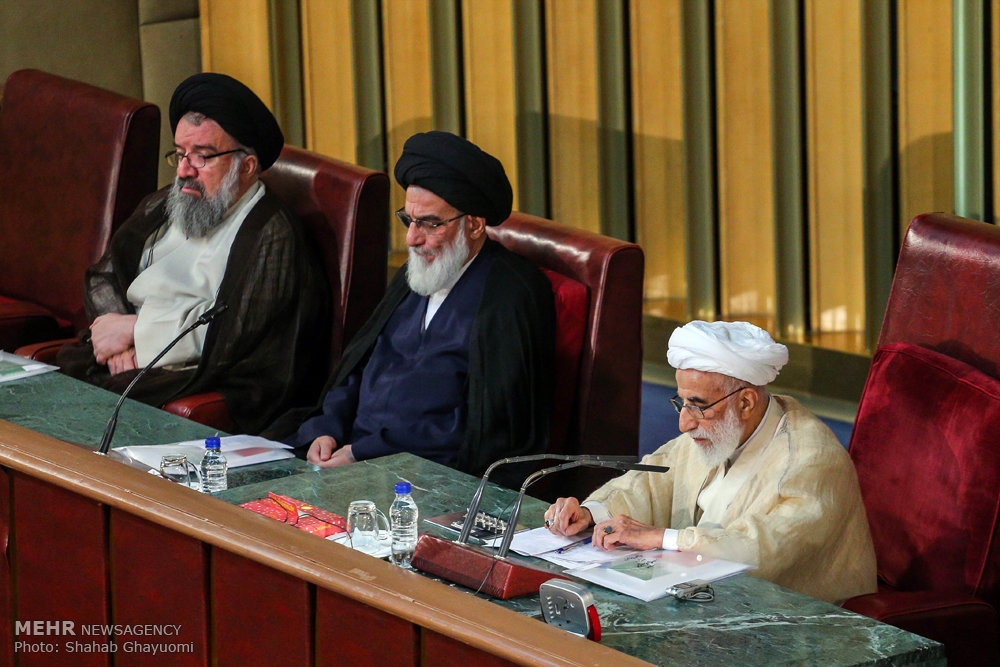Assembly of Experts chief: Iran cannot trust ‘Western smile’

TEHRAN – The head of the Assembly of Experts on Tuesday said “the Western smile cannot be trusted,” warning against putting too much trust in ties with Western countries.
Addressing the opening ceremony of the assembly, Ayatollah Ahmad Jannati said trusting the United States of America in particular means falling in their trap.
Jannati also touched upon the Kurdistan Regional Government’s proposed referendum and dismissed it as a U.S. plot.
“America wants to disintegrate the Kurdistan region and create another Israel out of it. We should take care that the American desire does not get anywhere.”
Jannati also expressed concern over the agonies of Muslim in Myanmar and called on all countries to express condolence with the oppressed Muslims in that country and take initiative to end the miserable situation there.
Since October 2016, Myanmar’s government has laid a siege to the western state of Rakhine, where the Rohingya Muslims are concentrated. There, horrific violence, including killing, rape and torching property, has been taking place against the minority Muslims, according to reports and eyewitnesses.
The attacks have seen a sharp rise since August 25 after dozens of police and border outposts in Rakhine came under attack purportedly by a group claiming to be the defenders of the Rohingya. The alleged assaults were launched in response to a government clampdown in the area, where over a million Rohingya are based.
The United Nations last week said so far more than 400,000 desperate Rohingya Muslims have fled the violence in Myanmar and crossed into neighboring Bangladesh, as Dhaka pleads for global help to cope with the humanitarian crisis.
The brutality against Rohingya Muslims follows the fact that Myanmar does not recognize them as citizens and has denied citizenship rights to 1.1 million members of the community for several decades, alleging they are Bengalis who have in the past migrated to the country from Bangladesh.
The Rohingya were stripped of their citizenship in 1982 despite having lived in the country for generations.
Due to their status, the Rohingya are not free to travel and practice their religion, having little access to medical care, food or education.
SP/PA
